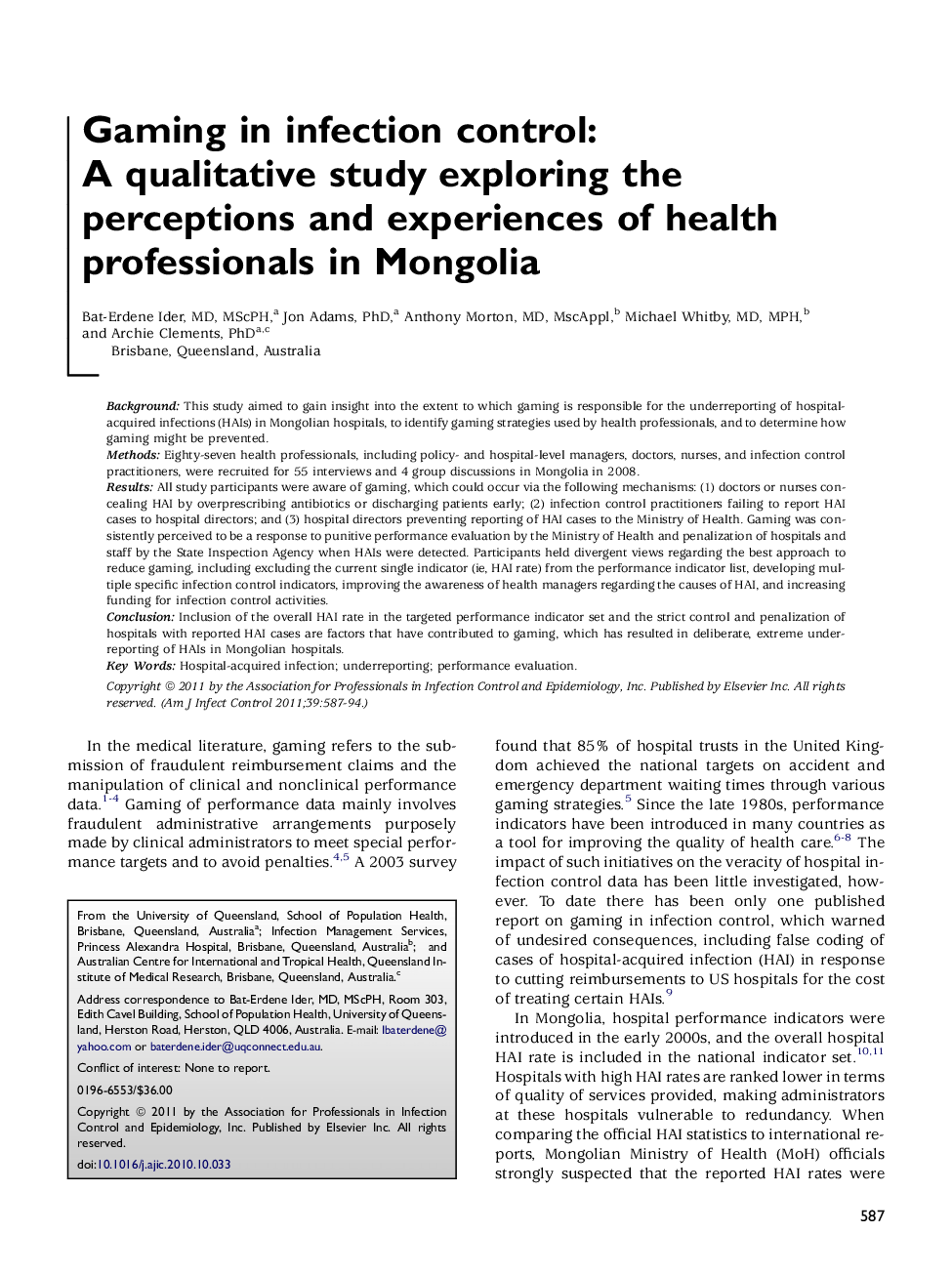| Article ID | Journal | Published Year | Pages | File Type |
|---|---|---|---|---|
| 2638789 | American Journal of Infection Control | 2011 | 8 Pages |
BackgroundThis study aimed to gain insight into the extent to which gaming is responsible for the underreporting of hospital-acquired infections (HAIs) in Mongolian hospitals, to identify gaming strategies used by health professionals, and to determine how gaming might be prevented.MethodsEighty-seven health professionals, including policy- and hospital-level managers, doctors, nurses, and infection control practitioners, were recruited for 55 interviews and 4 group discussions in Mongolia in 2008.ResultsAll study participants were aware of gaming, which could occur via the following mechanisms: (1) doctors or nurses concealing HAI by overprescribing antibiotics or discharging patients early; (2) infection control practitioners failing to report HAI cases to hospital directors; and (3) hospital directors preventing reporting of HAI cases to the Ministry of Health. Gaming was consistently perceived to be a response to punitive performance evaluation by the Ministry of Health and penalization of hospitals and staff by the State Inspection Agency when HAIs were detected. Participants held divergent views regarding the best approach to reduce gaming, including excluding the current single indicator (ie, HAI rate) from the performance indicator list, developing multiple specific infection control indicators, improving the awareness of health managers regarding the causes of HAI, and increasing funding for infection control activities.ConclusionInclusion of the overall HAI rate in the targeted performance indicator set and the strict control and penalization of hospitals with reported HAI cases are factors that have contributed to gaming, which has resulted in deliberate, extreme underreporting of HAIs in Mongolian hospitals.
